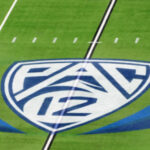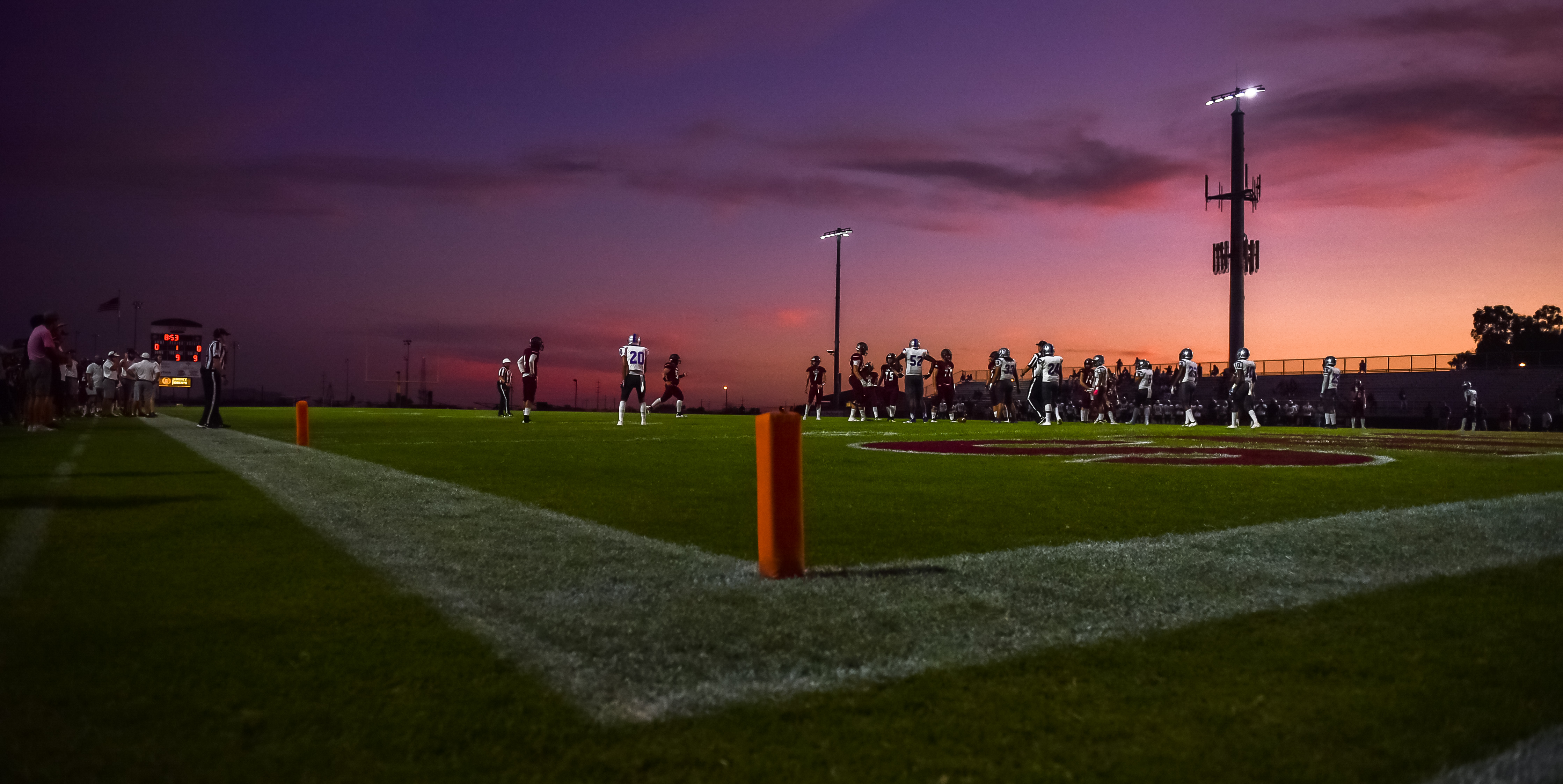Sports gambling scandals have impacted schools in the SEC, Big Ten and Big 12 recently. Assuredly, the Pac-12 is next. After all, gambling is legal in four of the six states within the conference footprint, the football championship game and basketball tournaments are held in Las Vegas, and misfortune seems to follow the conference like extra-point attempts follow touchdowns.
“Everybody’s due in some sense,” said Matt Holt, president of U.S. Integrity, which provides sports wagering oversight to numerous NCAA conferences, including the Pac-12. “It’s like the financial world, where people get caught doing things they shouldn’t. Everyone can be tempted. It’s no different in sports betting.”
Temptation and opportunity within college athletics have soared since 2018, when the Supreme Court struck down a federal ban on sports wagering. Currently, 33 states and Washington, D.C. have legal, live betting, according to the American Gaming Association. (Wagering is legal in four more states but not yet operational.)
The NCAA is concerned enough that new president Charlie Baker commissioned a national survey this spring of 3,527 young adults (ages 18-to-22), with approximately half registering as current college students. (The number of athletes was too small to be measured separately.)
According to the survey:
— More than half (58 percent) have wagered on sports at least once.
— Approximately 30 percent have bet on college football or college basketball.
— The activity is prevalent on campus with “67 percent of students living on campus are bettors and tend to bet at a higher frequency.”
Sports wagering stands alongside name, image and likeness (NIL), the transfer portal and a bevy of legal challenges to the NCAA’s amateurism model as compounding forces thrusting college athletics into a new era.
“If you had said to me 20 years ago that we’d be discussing (the impact of legalized gambling), I’d have said, ‘What are you talking about?’” said Dr. Timothy Fong, co-director of the UCLA Gambling Studies Program and a clinical professor of psychiatry.
“The world has changed so much in the last five years. And we predict that in the next five years, (sports gambling) will only get deeper and more embedded.”
But a near-term scandal in which players, coaches or officials are caught passing along inside information or placing wagers themselves — something comparable to the incidents at Alabama, Iowa and Iowa State — isn’t inevitable for the Pac-12.
In fact, moving the men’s basketball tournament to Las Vegas in 2013 forced the conference into a proactive strategy. It created a gambling awareness program for its staff and officials and developed relationships with law enforcement and gaming regulators. The training programs for players and coaches are handled at the campus level, with reminder sessions before any events in Las Vegas.
And in 2018 — the year the Supreme Court struck down the federal ban on sports wagering — the Pac-12 partnered with U.S. Integrity, a Nevada-based company that monitors wagering data for suspicious activity. (Its client list includes the NBA and MLB.)
U.S. Integrity tracks every event that has wagering available at a regulated, licensed sports book in North America. At the college level, it’s not just football and basketball. Certain baseball and softball games and NCAA championships have wagering available. The team of analysts uses algorithms that ingest real-time odds and are designed to spot abnormalities.
“Abnormal is someone who usually bets $50 but places a $20,000 wager,” Holt said. “It could be on college football or tennis. It’s not the money; it’s the 40 times the normal amount.”
The analysts correlate betting trends with the listed officials to check for games that are called in different ways and have unusual wagering activity. Relationships with the gaming operators like FanDuel and DraftKings allow U.S. Integrity to create baseline activity and spot abnormalities.
If an abnormality is discovered, U.S. Integrity notifies the relevant leagues, conferences, gaming operators and state regulators. (Holt said his company sends out 15 alerts per month across its vast client base.)
“Firms like U.S. Integrity make intuitive sense,” Fong said. “You wouldn’t expect a lot of action on (a college basketball game) on a Tuesday in February. And if there’s a $50,000 bet, that’s a red flag. I love the idea of the technology.
“But they can’t (monitor) in real-time. And the missing element is the unregulated gambling through illegal operators.”
Holt doesn’t believe the Pac-12’s proximity to Las Vegas creates a greater risk level with its players, coaches or officials. In fact, Sin City is not a component in his calculation.
“When you think about higher risk,” he said, “you start with opportunities to wager and the conferences in which the majority of schools are in states have legalized wagering.”
Only four states in the Pac-12 footprint permit gambling on sports, and it’s limited in two of them: Oregon allows wagering at tribal casinos, Holt said, while Washington requires bets to be placed in person and on camera. (The other two states with legal sports gambling are Colorado and Arizona.)
“You could make a good case the Pac-12 is at lower risk because of the situation with the states and the fact that they took a proactive approach,” Holt said. “They were out in front of this, like the SEC and the WCC (the West Coast Conference). They have more awareness, more training and a better process.”
The Pac-12’s oversight mechanisms could expand if the presidents approve the sale of data and statistics to gambling companies as part of the media rights negotiations. After all, no entity polices sports wagering better than the gaming industry itself.
But the broader challenges are mounting for college sports in the era of NIL, which allows players to receive compensation in exchange for marketing and endorsement endeavors.
“NIL has elevated the instances (of wagering), from what we’ve seen,” Holt said. “They have more money to burn.”
And if legal challenges to the NCAA’s economic model result in a revenue-sharing arrangement between schools and the players, the amount of disposable income will soar.
“This is the tip of the iceberg,” Fong said. “What we have discovered (the situations at Alabama, Iowa and Iowa State) is a fraction of what’s happening among student-athletes (nationally).
“If institutions aren’t ahead of it, they will inevitably have problems.”
*** Send suggestions, comments and tips (confidentiality guaranteed) to pac12hotline@bayareanewsgroup.com or call 408-920-5716
*** Follow me on Twitter: @WilnerHotline
*** Pac-12 Hotline is not endorsed or sponsored by the Pac-12 Conference, and the views expressed herein do not necessarily reflect the views of the Conference.
Related posts:
 Wilner Hotline: Eight need-to-knows for Week Nine of Pac-12 football
Wilner Hotline: Eight need-to-knows for Week Nine of Pac-12 football
 Wilner Hotline – Which Pac-12 Football Coaches Are On the Hot Seat
Wilner Hotline – Which Pac-12 Football Coaches Are On the Hot Seat
 Wilner – Pac-12 football schedule breakdown: Colorado, Utah, Cal have the most arduous paths in 2023
Wilner – Pac-12 football schedule breakdown: Colorado, Utah, Cal have the most arduous paths in 2023
 Pac-12 football: Welcome to June, a vital month on the recruiting trail
Pac-12 football: Welcome to June, a vital month on the recruiting trail
Jon Wilner
Jon Wilner has been covering college sports for decades and is an AP top-25 football and basketball voter as well as a Heisman Trophy voter. He was named Beat Writer of the Year in 2013 by the Football Writers Association of America for his coverage of the Pac-12, won first place for feature writing in 2016 in the Associated Press Sports Editors writing contest and is a five-time APSE honoree.